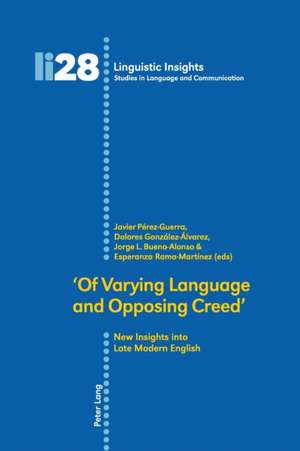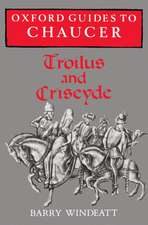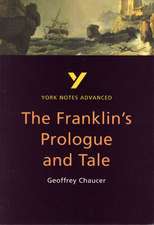Of Varying Language and Opposing Creed: New Insights into Late Modern English: Linguistic Insights. Studies in Language and Communication, cartea 28
Autor Javier Perez-Guerra, Jorge Bueno-alonsoen Limba Engleză Paperback – 13 aug 2007
Din seria Linguistic Insights. Studies in Language and Communication
- 23%
 Preț: 617.02 lei
Preț: 617.02 lei - 27%
 Preț: 830.13 lei
Preț: 830.13 lei - 9%
 Preț: 746.13 lei
Preț: 746.13 lei - 23%
 Preț: 617.02 lei
Preț: 617.02 lei - 8%
 Preț: 569.04 lei
Preț: 569.04 lei - 27%
 Preț: 831.09 lei
Preț: 831.09 lei - 27%
 Preț: 824.62 lei
Preț: 824.62 lei - 27%
 Preț: 785.53 lei
Preț: 785.53 lei - 27%
 Preț: 823.63 lei
Preț: 823.63 lei - 23%
 Preț: 664.20 lei
Preț: 664.20 lei - 27%
 Preț: 726.73 lei
Preț: 726.73 lei - 27%
 Preț: 787.35 lei
Preț: 787.35 lei - 27%
 Preț: 829.96 lei
Preț: 829.96 lei - 23%
 Preț: 483.05 lei
Preț: 483.05 lei - 27%
 Preț: 734.18 lei
Preț: 734.18 lei - 27%
 Preț: 885.92 lei
Preț: 885.92 lei - 27%
 Preț: 857.93 lei
Preț: 857.93 lei - 27%
 Preț: 740.25 lei
Preț: 740.25 lei - 23%
 Preț: 623.10 lei
Preț: 623.10 lei - 23%
 Preț: 664.36 lei
Preț: 664.36 lei - 23%
 Preț: 616.85 lei
Preț: 616.85 lei - 23%
 Preț: 686.01 lei
Preț: 686.01 lei - 27%
 Preț: 928.87 lei
Preț: 928.87 lei - 27%
 Preț: 971.71 lei
Preț: 971.71 lei - 27%
 Preț: 720.41 lei
Preț: 720.41 lei - 27%
 Preț: 796.64 lei
Preț: 796.64 lei - 23%
 Preț: 658.84 lei
Preț: 658.84 lei - 9%
 Preț: 877.21 lei
Preț: 877.21 lei - 27%
 Preț: 771.59 lei
Preț: 771.59 lei - 27%
 Preț: 752.19 lei
Preț: 752.19 lei - 9%
 Preț: 603.72 lei
Preț: 603.72 lei - 27%
 Preț: 667.67 lei
Preț: 667.67 lei - 23%
 Preț: 662.73 lei
Preț: 662.73 lei - 9%
 Preț: 696.52 lei
Preț: 696.52 lei - 27%
 Preț: 746.71 lei
Preț: 746.71 lei - 8%
 Preț: 528.64 lei
Preț: 528.64 lei - 27%
 Preț: 830.13 lei
Preț: 830.13 lei - 27%
 Preț: 827.00 lei
Preț: 827.00 lei - 23%
 Preț: 660.93 lei
Preț: 660.93 lei - 23%
 Preț: 698.47 lei
Preț: 698.47 lei - 8%
 Preț: 524.10 lei
Preț: 524.10 lei - 23%
 Preț: 658.26 lei
Preț: 658.26 lei - 9%
 Preț: 669.69 lei
Preț: 669.69 lei - 27%
 Preț: 753.59 lei
Preț: 753.59 lei - 23%
 Preț: 595.68 lei
Preț: 595.68 lei - 9%
 Preț: 629.77 lei
Preț: 629.77 lei - 9%
 Preț: 707.06 lei
Preț: 707.06 lei - 23%
 Preț: 699.65 lei
Preț: 699.65 lei - 9%
 Preț: 738.58 lei
Preț: 738.58 lei
Preț: 871.59 lei
Preț vechi: 1193.97 lei
-27% Nou
Puncte Express: 1307
Preț estimativ în valută:
166.78€ • 174.57$ • 138.81£
166.78€ • 174.57$ • 138.81£
Carte tipărită la comandă
Livrare economică 31 martie-14 aprilie
Preluare comenzi: 021 569.72.76
Specificații
ISBN-13: 9783039107889
ISBN-10: 3039107887
Pagini: 455
Dimensiuni: 265 x 151 x 24 mm
Greutate: 0.62 kg
Ediția:1
Editura: Peter Lang Gmbh, Internationaler Verlag Der W
Colecția Peter Lang Pub Inc
Seriile Linguistic Insights. Studies in Language and Communication, Linguistic Insights. Studies in Language and Communication
ISBN-10: 3039107887
Pagini: 455
Dimensiuni: 265 x 151 x 24 mm
Greutate: 0.62 kg
Ediția:1
Editura: Peter Lang Gmbh, Internationaler Verlag Der W
Colecția Peter Lang Pub Inc
Seriile Linguistic Insights. Studies in Language and Communication, Linguistic Insights. Studies in Language and Communication
Notă biografică
The Editors: The editors are associate professors at the Department of English, University of Vigo (Spain).
Cuprins
Contents: Javier Pérez-Guerra/Dolores González-Álvarez/Jorge L. Bueno-Alonso/Esperanza Rama-Martínez: 'Of varying language and opposing creed': Five first details are being depicted - Joan C. Beal: 'To explain the present': nineteenth-century evidence for 'recent' changes in English pronunciation - Laurel J. Brinton: What's more: the development of pragmatic markers in the modern period - Hubert Cuyckens/Hendrik De Smet: For...to-infinitives from Early to Late Modern English - Stefan Dollinger: The importance of demography for the study of historical Canadian English: three examples from the Corpus of Early Ontario English - Radoslaw Dylewski: Forms of tri-alternant verbs in early American writings (1662-1720) - Teresa Fanego: Drift and the development of sentential complements in British and American English from 1700 to the present day - Victorina González-Díaz: Worser and lesser in Modern English - Bernd Kortmann/Susanne Wagner: A fresh look at Late Modern English dialect syntax - María José López-Couso: Auxiliary and negative cliticisation in Late Modern English - Meiko Matsumoto: The historical development of take/have a walk - Isabel Moskowich/Begoña Crespo: Presenting the Coruña Corpus: a collection of samples for the historical study of English scientific writing - Paloma Núñez Pertejo: Aspects of the use of the progressive in the eighteenth century - Elena Orduna Nocito: The semantic field of 'manners' in the eighteenth century: a cognitive approach - Päivi Pahta/Arja Nurmi: 'What we do cón amore': structures of code-switching in eighteenth-century personal letters - Ingrid Tieken-Boon van Ostade/Fátima María Faya Cerqueiro: Saying please in Late Modern English.

















